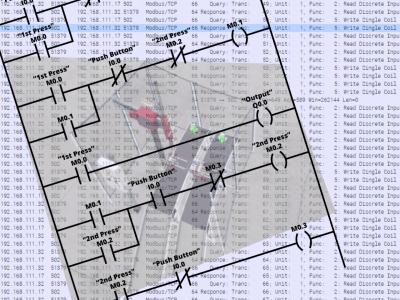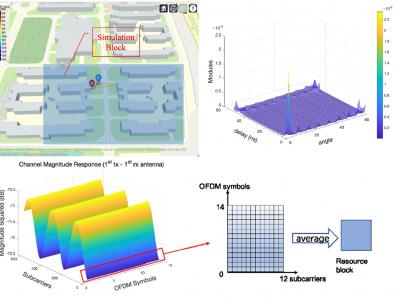Communications

This is the source code and dataset of the paper "Double QoS Guarantee for NOMA-Enabled
Massive MTC Networks".
- Categories:
 223 Views
223 Views
This data set, contains all the Duty Cycle (DC) measurements (Wi-Fi Channels 1 - 12 for 2.4GHz band), which exported through Energy Detection from Monitor DU3. The data set contains measurements between 2021-01-01 to 2021-12-20.
- Categories:
 137 Views
137 ViewsThis dataset consisting of MODBUS/TCP communication was created using the Factory.IO simulator (trial version is available). The dataset contains different scenarios that control different industrial processes. For each scenario, files are provided to capture normal communication and communication with anomalies. The purpose of the dataset is to support research and evaluation of anomaly detection methods in the field of ICS.
- Categories:
 2930 Views
2930 ViewsThis is the example dataset and source code of the paper "A Generalized Channel Dataset Generator for 5G New Radio Systems Based on Ray-Tracing" , and the data generator can be downloaded for free by researchers.
The datagenerator_raytrace3.0 is now support for mm-wave (28GHz+) channel state information.
The advantages of our dataset are as follows:
-
To deal with the large-scale dataset requirements, this letter models the channel according to 5G NR stan- dard published by 3GPP, and provides a 5G NR channel datasets generator based on CDL channel model.
- Categories:
 1381 Views
1381 Views
We present detailed derivation of probability functions of differential ad-hoc detector and coherent detectors of XOR H-map for 2 (differentially encoded) BPSK source in H-MAC channel. Matlab script-files for (analytical) H-BER computation are provided.
- Categories:
 182 Views
182 Views
Any work using this dataset should cite the following paper:
- Categories:
 1878 Views
1878 ViewsThe measurement dataset consists of reflected received power from different shaped and sized metallic reflectors at 28 GHz in the indoor corridor and outdoor open area. PXI channel sounder from National Instruments was used for measurements. Horn antennas of gain 17 dBi were used at the transmitter and receiver. The measurements consisted of three flat square metallic reflectors of sizes 0.84 × 0.84 m^2 , 0.61 × 0.61 m^2 , and 0.3 × 0.3 m^2 , a sphere, and a cylinder. The effect of size and shape of the reflectors on the coverage was analyzed in the indoor corridor and outdoor open area.
- Categories:
 347 Views
347 ViewsPlease cite the following paper when using this dataset:
N. Thakur, "Twitter Big Data as a Resource for Exoskeleton Research: A Large-Scale Dataset of about 140,000 Tweets from 2017–2022 and 100 Research Questions", Journal of Analytics, Volume 1, Issue 2, 2022, pp. 72-97, DOI: https://doi.org/10.3390/analytics1020007
Abstract
- Categories:
 2791 Views
2791 Views
A synthetic signal dataset of 12 different modulations (including PSK, QPSK, 8PSK, QFSK, 8FSK, 16APSK, 16QAM, 64QAM, 4PAM, LFM, DSB-SC, and SSBSC) with different DOAs (discrete angles ranging from -60° to 60° with the step size of 1°) is generated using MATLAB 2021a. Regarding the signal model configuration for the data generation, we specify a uniform linear antenna array of M = 5 elements to acquire incoming signals having N = 1024 envelope complex samples, thus conducting an I/Q data array of size 1024 × 2 × 5.
- Categories:
 3432 Views
3432 ViewsResource Efficient Real-Time Reliability Model for Multi-Agent IoT Systems
Resource Efficient Real-Time Reliability Model for Multi-Agent IoT Systems is called ERT-CORE. It defines specific input parameters, i.e., system's workload, average request processing time and availability. Defined parameters reflect system's state and react on its changes. Based on these parameters system reliability evaluation is performed.
- Categories:
 238 Views
238 Views



